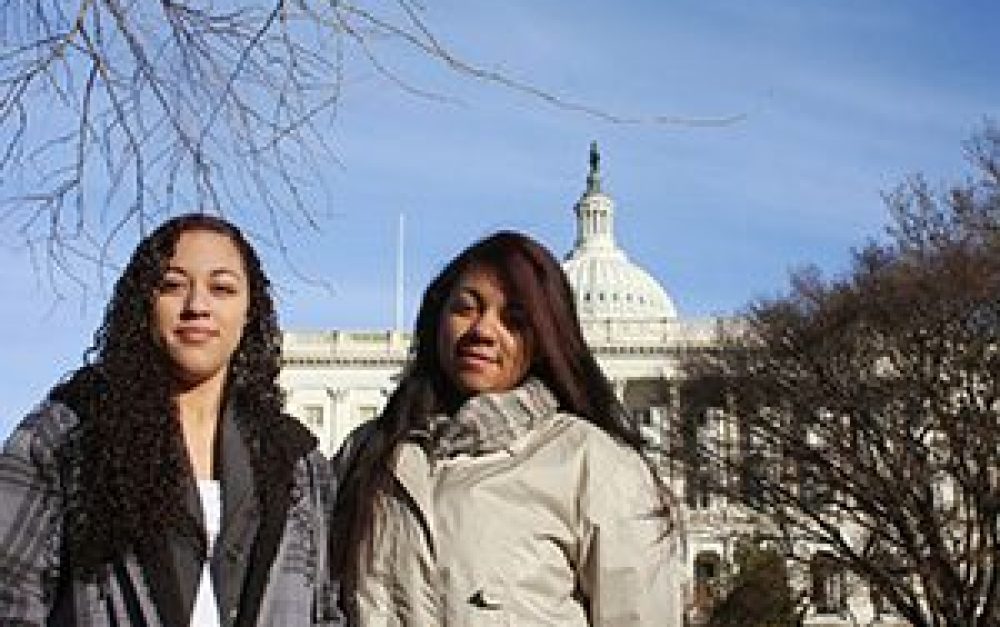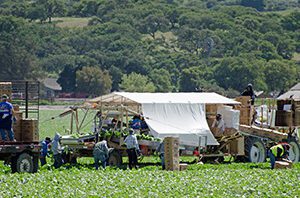Earlier this month, a group of farmworkers traveled from Florida and North Carolina to bring their very real-world concerns about pesticides to decisionmakers in DC. On the heels of their visits, we now hear that a long-awaited update of the rules designed to protect workers in the field is actually, finally moving forward.
The Worker Protection Standard — or WPS — is the one rule intended to protect farmworkers from pesticide exposure on the job. It first went into effect back in 1995 and has never been strengthened or updated, despite clear evidence that workers across the country are suffering health harms from exposure to hazardous chemicals on the job. Now it looks like improvements are finally in the works. And it's about time.
The Safer Farmworkers, Food and Families Campaign came together earlier this year to coordinate efforts of farmworker advocates from across the country to press EPA to strengthen the worker protections. We here at PAN have been actively involved in this fledgling but powerful coalition.
Farmworker "fly-ins"
This is the second time farmworkers have brought stories from the field to DC decisionmakers. The first visit was back in July, when farmworkers and farmworker advocates joined forces to highlight the urgent need for stronger protections, and map out the changes needed to get there.
Near the end of 2013, EPA submitted proposed improvements in the law to the U.S. Department of Agriculture and to the Office of Management and Budget (OMB).
For this month's "fly in," farmworkers Miguel and Selena Zelaya and Yesenia and Neftali Cuello met with officials at both OMB and EPA. The workers' presentations to OMB highlighted risks faced by youth working in the fields, impacts to their family and economic costs of health effects related to pesticide exposure. Rather than focus on enforcement (an important issue indeed), the group focused on how better-protected and better-trained farmworkers would make the workplace safer.
At their meeting with EPA, officials expressed ‘great concern’ over pesticide impacts to kids and youth, as well as adults. The team then headed to four different Hill offices where they sought congressional support for the campaign to improve the WPS.
Overdue process finally in motion
This isn’t the first time the Zelayas have traveled to Washington, D.C. to urge improvements to the WPS. They joined the delegation last July as well, bringing stories of on-the-ground harms and a message of urgency to EPA officials.
We anticipate that in the next few days, OMB will complete their review of EPA's proposed updates, and provide their comments to the agency. The next step will be for EPA to finalize the rule and publish it for public comment.
Speak up! » Sign our petition urging EPA to strengthen the WPS so that it actually protects farmworkers and their families in the fields. Then stay tuned as we present our take on the proposed rule and urge farmworker supporters around the country to lend their voices in support.
Photo courtesy of Toxic Free NC.








